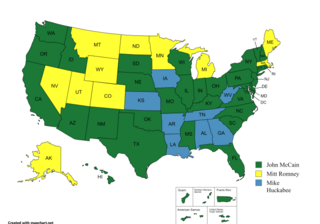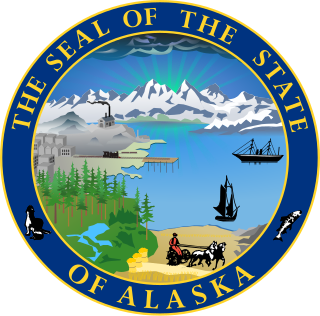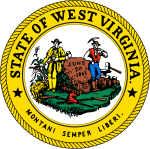
The 2008 United States presidential election was the 56th quadrennial presidential election, held on November 4, 2008. The Democratic ticket of Barack Obama, the junior senator from Illinois, and Joe Biden, the senior senator from Delaware, defeated the Republican ticket of John McCain, the senior senator from Arizona, and Sarah Palin, the governor of Alaska. Obama became the first African American to be elected to the presidency, as well as being only the third sitting United States senator elected president, joining Warren G. Harding and John F. Kennedy. Meanwhile, this was only the second successful all-senator ticket since the 1960 election and is the only election where both major party nominees were sitting senators. This was the first election since 1952 in which neither the incumbent president nor vice president was on the ballot, as well as the first election since 1928 in which neither ran for the nomination.

This article contains lists of official candidates associated with the 2008 Republican Party presidential primaries for the 2008 United States presidential election.
The following is a timeline of major events leading up to and immediately following the United States presidential election of 2008. The election was the 56th quadrennial United States presidential election. It was held on November 4, 2008, but its significant events and background date back to about 2002. The Democratic Party nominee, Senator Barack Obama of Illinois, defeated the Republican Party's nominee, Senator John McCain of Arizona.

The 2008 Iowa Republican presidential caucuses took place on January 3, 2008. The Iowa Republican caucuses are an unofficial primary, with the delegates to the state convention selected proportionally via a straw poll. The Iowa caucuses mark the traditional formal start of the delegate selection process for the 2008 United States presidential election.

From January 3 to June 3, 2008, voters of the Republican Party chose their nominee for president in the 2008 United States presidential election. Senator John McCain of Arizona was selected as the nominee through a series of primary elections and caucuses culminating in the 2008 Republican National Convention held from Monday, September 1, through Thursday, September 4, 2008, in Saint Paul, Minnesota. President George W. Bush was ineligible to be elected to a third term due to the term limits established by the 22nd Amendment.
Statewide public opinion polls conducted relating to the 2008 Republican Party presidential primaries, typically using standard statistical methodology, include:

In early 2007, Ron Paul, a congressman from Texas, announced his candidacy for the Republican Party's nomination for president of the United States in the 2008 election. Initial opinion polls during the first three quarters of 2007 showed him consistently receiving support from 3% or less of those polled. In 2008, Paul's support among Republican voters remained in the single digits, and well behind front-runner John McCain.

The Mike Huckabee 2008 presidential campaign began on January 28, 2007, when former Governor of Arkansas Mike Huckabee announced his candidacy for the Republican nomination for President of the United States for the 2008 election. Huckabee ultimately ended his bid for the nomination after losing the Texas Republican primary on March 4, 2008.

This article contains the results of the 2008 Republican presidential primaries and caucuses.

The 2008 United States presidential election in Iowa took place on November 4, 2008, as part of the 2008 United States presidential election. Voters chose seven representatives, or electors to the Electoral College, who voted for president and vice president.

The 2008 New Hampshire Republican presidential primary took place on January 8, 2008, with 12 national delegates being allocated proportionally to the popular vote.

The 2008 Nevada Republican presidential caucuses was held on January 19, the same day as the 2008 South Carolina Republican primary, with 31 delegates at stake. Mitt Romney was the winner in Nevada with 51% of the votes, with Ron Paul in second place. Half of Romney's votes came from Mormons, while two-thirds of the independent voters favored Paul. According to the Las Vegas Sun, Republicans crossed over in large numbers to vote Democratic; CNN exit polls indicated that Republican voters made up 4% of the Democratic caucus turnout.

The 2008 South Carolina Republican presidential primary was held on January 19, with 24 delegates at stake. The Republican National Committee took half of South Carolina's 47 delegates away from them because the state committee moved its Republican primary before February 5. It was held on the same day as the Nevada Republican caucuses, 2008.

The 2008 Florida Republican presidential primary was held on January 29, 2008, with 57 delegates at stake on a winner-take-all basis. The Republican National Committee removed half of Florida's delegates because the state committee moved its Republican primary before February 5.

The 2008 Oklahoma Republican presidential primary was held on February 5, with 41 delegates at stake. It was a closed primary, meaning only registered Republicans could vote in the election. The primary was on Super Tuesday on the same day as twenty-three other states. John McCain won Oklahoma's primary with 37% of the vote, although Mike Huckabee picked up some delegate votes as well by receiving 33% of the vote.

The 2008 Delaware Republican presidential primary was held on February 5. A total of 18 delegates were selected. The Delaware Republican Party rallied behind John McCain, and was the declared winner of the primary election after successfully taking all three Delaware counties. McCain was followed by Mitt Romney in second and then by Mike Huckabee in third.

The 2008 Alaska Republican presidential caucuses were held on February 5, 2008, and has a total of 26 delegates at stake. Mitt Romney won the state, and, as the winner in Alaska's congressional district, was awarded all of that district's delegates. All results are from the presidential preference poll held at the caucuses. Actual delegates were selected on February 5 or 9 at district conventions held throughout the state, and finally at a statewide convention held between March 13–15 in Anchorage.
The following is a timeline of major events leading up to the United States presidential election of 2012. The election was the 57th quadrennial United States presidential election and was held on November 6, 2012.

The 2012 United States presidential election in Missouri took place on November 6, 2012, as part of the 2012 United States presidential election, in which all 50 states plus the District of Columbia participated. Missouri voters chose 10 electors to represent them in the Electoral College via a popular vote pitting incumbent Democratic President Barack Obama and his running mate, Vice President Joe Biden, against Republican challenger and former Massachusetts Governor Mitt Romney and his running mate, Congressman Paul Ryan.

















